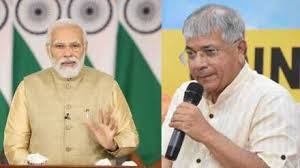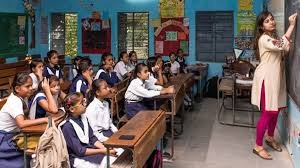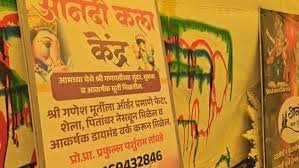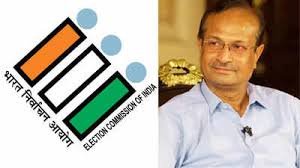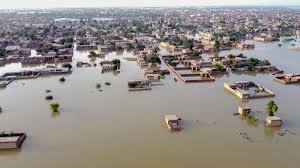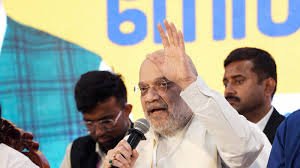
PM Modi's Educational Qualification: Delhi High Court's Big Decision
New Delhi, August 25, 2025: The Delhi High Court has given a significant decision regarding the details of Prime Minister Narendra Modi's degree. While quashing the order passed by the Central Information Commission (CIC) in 2016, the court clarified that Delhi University is not required to publicly disclose the details of Prime Minister Modi's BA degree in 1978. This decision has become a topic of discussion in connection with the information sought under the Right to Information Act (RTI).
Background
In 2016, Neeraj Kumar, an activist under the Right to Information Act, had sought information from Delhi University about the results of all the students who appeared for the BA examination in 1978. This included the students' roll numbers, names, father's name and marks obtained. The purpose of seeking this information was to verify Prime Minister Narendra Modi's educational qualifications. However, the Central Information Officer (CPIO) of Delhi University had refused to disclose this information, saying that it was third-party information.
After this, Neeraj Kumar appealed to the Central Information Commission. On December 21, 2016, the CIC directed Delhi University to inspect the records of the 1978 BA examination results and provide a certified copy thereof free of cost. The commission argued that academic records are in the public domain and since universities are public institutions, their records are part of public documents.
However, Delhi University moved the Delhi High Court in 2017 challenging this order. On January 23, 2017, the court granted an interim stay on the CIC order.
Delhi High Court's arguments
During the hearing before Justice Sachin Dutta, Solicitor General Tushar Mehta, representing Delhi University, said that the Right to Information Act is not meant to satisfy anyone's personal curiosity. He argued that the university holds student information in a "fiduciary capacity" and it cannot be disclosed to a third party. Mehta stressed that the RTI Act is meant to reveal information related to transparency and accountability of public institutions, and not for the disclosure of personal information.
Mehta further said that if the 1978 information request is granted, then the information for 1979 or any other year may be sought in future, which will adversely affect the administration of the university. He said that the CIC order is against the established principles of law.
Court's decision
The Delhi High Court accepted the argument of Delhi University and set aside the CIC order. The court clarified that information about Prime Minister Modi's educational qualifications is personal information and is protected under Section 8(1)(e) of the RTI Act. Under this section, information held in a confidential relationship cannot be disclosed to a third party unless there is a substantial public interest in it.
The court also noted that there is no link between the constitutional office of the Prime Minister and his educational qualifications. Therefore, there is no need to make this information public. If necessary, this information can be submitted to the court, but it will not be kept in the public domain, as it can feed political motives.
Gujarat High Court's view
Earlier, in 2023, the Gujarat High Court had also ruled against the disclosure of information about Prime Minister Modi's postgraduate degree from Gujarat University. The court had imposed a fine of Rs 25,000 on Delhi Chief Minister Arvind Kejriwal, as he was considered to have misused the RTI Act. The Gujarat High Court said that educational qualifications are personal information and are protected under the right to privacy.
Political reaction
The issue has been a subject of political controversy for the past few years. It has been repeatedly criticized by opposition leaders, especially Arvind Kejriwal, who have questioned Prime Minister Modi's educational qualifications. In 2016, BJP leaders Amit Shah and Arun Jaitley had shown Modi's degree certificate at a press conference, but the opposition had raised doubts about it.
Even after this decision of the Delhi High Court, the political debate on this issue is likely to continue. Some have raised questions on social media that if there is no problem in disclosing the information, then why is it being hidden?
New Delhi, August 25, 2025: The Delhi High Court has given a significant decision regarding the details of Prime Minister Narendra Modi's degree. While quashing the order passed by the Central Information Commission (CIC) in 2016, the court clarified that Delhi University is not required to publicly disclose the details of Prime Minister Modi's BA degree in 1978. This decision has become a topic of discussion in connection with the information sought under the Right to Information Act (RTI).
Background
In 2016, Neeraj Kumar, an activist under the Right to Information Act, had sought information from Delhi University about the results of all the students who appeared for the BA examination in 1978. This included the students' roll numbers, names, father's name and marks obtained. The purpose of seeking this information was to verify Prime Minister Narendra Modi's educational qualifications. However, the Central Information Officer (CPIO) of Delhi University had refused to disclose this information, saying that it was third-party information.
After this, Neeraj Kumar appealed to the Central Information Commission. On December 21, 2016, the CIC directed Delhi University to inspect the records of the 1978 BA examination results and provide a certified copy thereof free of cost. The commission argued that academic records are in the public domain and since universities are public institutions, their records are part of public documents.
However, Delhi University moved the Delhi High Court in 2017 challenging this order. On January 23, 2017, the court granted an interim stay on the CIC order.
Delhi High Court's arguments
During the hearing before Justice Sachin Dutta, Solicitor General Tushar Mehta, representing Delhi University, said that the Right to Information Act is not meant to satisfy anyone's personal curiosity. He argued that the university holds student information in a "fiduciary capacity" and it cannot be disclosed to a third party. Mehta stressed that the RTI Act is meant to reveal information related to transparency and accountability of public institutions, and not for the disclosure of personal information.
Mehta further said that if the 1978 information request is granted, then the information for 1979 or any other year may be sought in future, which will adversely affect the administration of the university. He said that the CIC order is against the established principles of law.
Court's decision
The Delhi High Court accepted the argument of Delhi University and set aside the CIC order. The court clarified that information about Prime Minister Modi's educational qualifications is personal information and is protected under Section 8(1)(e) of the RTI Act. Under this section, information held in a confidential relationship cannot be disclosed to a third party unless there is a substantial public interest in it.
The court also noted that there is no link between the constitutional office of the Prime Minister and his educational qualifications. Therefore, there is no need to make this information public. If necessary, this information can be submitted to the court, but it will not be kept in the public domain, as it can feed political motives.
Gujarat High Court's view
Earlier, in 2023, the Gujarat High Court had also ruled against the disclosure of information about Prime Minister Modi's postgraduate degree from Gujarat University. The court had imposed a fine of Rs 25,000 on Delhi Chief Minister Arvind Kejriwal, as he was considered to have misused the RTI Act. The Gujarat High Court said that educational qualifications are personal information and are protected under the right to privacy.
Political reaction
The issue has been a subject of political controversy for the past few years. It has been repeatedly criticized by opposition leaders, especially Arvind Kejriwal, who have questioned Prime Minister Modi's educational qualifications. In 2016, BJP leaders Amit Shah and Arun Jaitley had shown Modi's degree certificate at a press conference, but the opposition had raised doubts about it.
Even after this decision of the Delhi High Court, the political debate on this issue is likely to continue. Some have raised questions on social media that if there is no problem in disclosing the information, then why is it being hidden?
Background
In 2016, Neeraj Kumar, an activist under the Right to Information Act, had sought information from Delhi University about the results of all the students who appeared for the BA examination in 1978. This included the students' roll numbers, names, father's name and marks obtained. The purpose of seeking this information was to verify Prime Minister Narendra Modi's educational qualifications. However, the Central Information Officer (CPIO) of Delhi University had refused to disclose this information, saying that it was third-party information.
After this, Neeraj Kumar appealed to the Central Information Commission. On December 21, 2016, the CIC directed Delhi University to inspect the records of the 1978 BA examination results and provide a certified copy thereof free of cost. The commission argued that academic records are in the public domain and since universities are public institutions, their records are part of public documents.
However, Delhi University moved the Delhi High Court in 2017 challenging this order. On January 23, 2017, the court granted an interim stay on the CIC order.
Delhi High Court's arguments
During the hearing before Justice Sachin Dutta, Solicitor General Tushar Mehta, representing Delhi University, said that the Right to Information Act is not meant to satisfy anyone's personal curiosity. He argued that the university holds student information in a "fiduciary capacity" and it cannot be disclosed to a third party. Mehta stressed that the RTI Act is meant to reveal information related to transparency and accountability of public institutions, and not for the disclosure of personal information.
Mehta further said that if the 1978 information request is granted, then the information for 1979 or any other year may be sought in future, which will adversely affect the administration of the university. He said that the CIC order is against the established principles of law.
Court's decision
The Delhi High Court accepted the argument of Delhi University and set aside the CIC order. The court clarified that information about Prime Minister Modi's educational qualifications is personal information and is protected under Section 8(1)(e) of the RTI Act. Under this section, information held in a confidential relationship cannot be disclosed to a third party unless there is a substantial public interest in it.
The court also noted that there is no link between the constitutional office of the Prime Minister and his educational qualifications. Therefore, there is no need to make this information public. If necessary, this information can be submitted to the court, but it will not be kept in the public domain, as it can feed political motives.
Gujarat High Court's view
Earlier, in 2023, the Gujarat High Court had also ruled against the disclosure of information about Prime Minister Modi's postgraduate degree from Gujarat University. The court had imposed a fine of Rs 25,000 on Delhi Chief Minister Arvind Kejriwal, as he was considered to have misused the RTI Act. The Gujarat High Court said that educational qualifications are personal information and are protected under the right to privacy.
Political reaction
The issue has been a subject of political controversy for the past few years. It has been repeatedly criticized by opposition leaders, especially Arvind Kejriwal, who have questioned Prime Minister Modi's educational qualifications. In 2016, BJP leaders Amit Shah and Arun Jaitley had shown Modi's degree certificate at a press conference, but the opposition had raised doubts about it.
Even after this decision of the Delhi High Court, the political debate on this issue is likely to continue. Some have raised questions on social media that if there is no problem in disclosing the information, then why is it being hidden?

.jpg)






